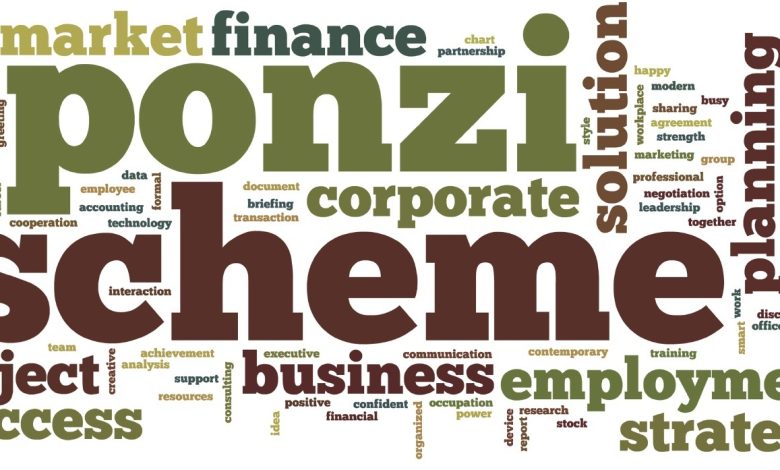How to Recognize and Avoid Ponzi Schemes

- Understanding the basics of Ponzi schemes
- Red flags to look out for in potential Ponzi schemes
- Common tactics used by Ponzi scheme operators
- Steps to take if you suspect you are involved in a Ponzi scheme
- Protecting yourself from falling victim to Ponzi schemes
- Resources available for reporting Ponzi schemes
Understanding the basics of Ponzi schemes
Understanding the basics of Ponzi schemes is crucial in order to protect yourself from falling victim to financial fraud. Ponzi schemes are a type of investment scam where returns are paid to earlier investors using the capital of newer investors, rather than from profit earned by the operation of a legitimate business. This creates a cycle where the scheme relies on a constant influx of new investors to continue paying returns to existing ones.
One key characteristic of Ponzi schemes is the promise of high returns with little to no risk. Scammers often use tactics such as guaranteed returns or consistently high profits to lure in unsuspecting investors. They may also pressure individuals to invest quickly, claiming limited availability or exclusive opportunities.
Another red flag to watch out for is the lack of transparency in how the investment operates. Ponzi schemes typically do not provide clear information on how returns are generated or where the money is being invested. Investors are often kept in the dark about the true nature of the scheme, making it difficult to assess the legitimacy of the opportunity.
It is important to remember that Ponzi schemes are unsustainable by nature and will eventually collapse when there are not enough new investors to pay returns to existing ones. This can result in significant financial losses for those involved, as the scheme unravels and funds are unable to be recovered.
By familiarizing yourself with the basics of Ponzi schemes and staying vigilant for warning signs, you can protect yourself from becoming a victim of financial fraud. Remember to always research investment opportunities thoroughly, ask questions, and seek advice from trusted financial professionals before making any decisions.
Red flags to look out for in potential Ponzi schemes
When considering potential investments, it is crucial to be aware of red flags that may indicate a Ponzi scheme. By recognizing these warning signs early on, you can protect yourself from falling victim to financial fraud.
- Consistent Returns: Be wary of investment opportunities that promise consistent or guaranteed returns, as this is often a characteristic of Ponzi schemes.
- Unregistered Investments: Avoid investing in opportunities that are not registered with the appropriate regulatory bodies, as this lack of oversight can be a sign of fraudulent activity.
- Complex Strategies: If the investment strategy is complex or difficult to understand, it may be a tactic used to obscure the true nature of a Ponzi scheme.
- High Pressure Sales Tactics: Be cautious of investments that use high-pressure sales tactics to push you into making a quick decision, as this urgency is often a red flag for fraudulent schemes.
- Difficulty Withdrawing Funds: If you encounter difficulty when trying to withdraw your funds or receive returns on your investment, it could be a sign that the scheme is collapsing.
By staying vigilant and being aware of these red flags, you can protect yourself from falling prey to Ponzi schemes and safeguard your hard-earned money.
Common tactics used by Ponzi scheme operators
One common tactic used by operators of Ponzi schemes is offering high returns with little to no risk. They may promise investors unusually high returns on their investments, often much higher than what is typically seen in the market. This can be a red flag as it is not realistic for any investment to consistently generate such high returns without taking on significant risk.
Another tactic is using new investor funds to pay returns to earlier investors. This creates the illusion of a successful investment, but in reality, the returns are not coming from any legitimate source of profit. Instead, the scheme relies on a constant influx of new investors to keep the operation afloat.
Ponzi scheme operators may also use complex or vague investment strategies to confuse investors. By using technical jargon or convoluted explanations, they can make it difficult for investors to understand how their money is actually being used. This lack of transparency can make it easier for operators to deceive investors and cover up the true nature of the scheme.
Additionally, Ponzi scheme operators often target specific groups of people, such as retirees or members of a certain community. By preying on the vulnerabilities or trust of these groups, operators can more easily convince them to invest their money. They may use tactics such as testimonials or referrals from within the community to gain credibility and attract new investors.
Overall, it is important to be aware of these common tactics used by Ponzi scheme operators in order to recognize and avoid falling victim to such fraudulent schemes. By staying informed and conducting thorough research before investing, individuals can protect themselves from financial harm.
Steps to take if you suspect you are involved in a Ponzi scheme
If you suspect that you are involved in a Ponzi scheme, it is crucial to take immediate action to protect yourself and potentially recover any lost funds. Here are some steps you can take to address the situation:
1. **Cease all investments:** The first step is to stop investing any more money into the scheme. This will prevent further losses and limit the damage to your finances.
2. **Gather documentation:** Collect all relevant documents related to your investments in the scheme, including contracts, statements, and correspondence. This information will be essential for any legal proceedings or investigations.
3. **Report to authorities:** Contact the appropriate regulatory authorities, such as the Securities and Exchange Commission (SEC) or the Federal Trade Commission (FTC), to report the suspected Ponzi scheme. They can investigate the matter and take legal action against the perpetrators.
4. **Seek legal advice:** Consult with a lawyer who specializes in financial fraud and securities law. They can advise you on your rights and options for recovering your money.
5. **Warn others:** Inform family, friends, and colleagues about your suspicions regarding the Ponzi scheme. This can help prevent them from falling victim to the same scam.
6. **Stay informed:** Keep yourself updated on any developments related to the Ponzi scheme, such as legal proceedings or settlements. This information can guide your next steps in recovering your funds.
By taking these proactive steps, you can protect yourself and potentially recover some or all of your investments in a Ponzi scheme. Remember to act swiftly and decisively to minimize the impact of the scam on your financial well-being.
Protecting yourself from falling victim to Ponzi schemes
Protecting yourself from becoming a victim of Ponzi schemes is crucial in safeguarding your finances and investments. Here are some key steps to help you avoid falling prey to these fraudulent schemes:
- Do thorough research before investing in any opportunity, especially if it promises high returns with little to no risk. Be wary of investments that sound too good to be true.
- Check the background of the individual or company offering the investment. Look for any red flags such as a lack of registration or licensing.
- Avoid investments that rely on recruiting new investors to pay returns to existing ones. This is a common characteristic of Ponzi schemes.
- Be cautious of pressure tactics or promises of guaranteed returns. Legitimate investments carry inherent risks, and no investment is foolproof.
- Seek advice from a trusted financial advisor or conduct due diligence on the investment opportunity. A second opinion can help you make an informed decision.
By staying vigilant and following these guidelines, you can protect yourself from falling victim to Ponzi schemes and safeguard your hard-earned money.
Resources available for reporting Ponzi schemes
If you suspect that you have been targeted by a Ponzi scheme, it is crucial to report it to the appropriate authorities. There are several resources available to help you report Ponzi schemes and protect yourself and others from falling victim to these fraudulent schemes.
One of the most important resources for reporting Ponzi schemes is the U.S. Securities and Exchange Commission (SEC). The SEC is responsible for regulating the securities industry and investigating potential securities fraud, including Ponzi schemes. You can report a Ponzi scheme to the SEC through their online complaint form or by contacting their enforcement division directly.
Another valuable resource for reporting Ponzi schemes is the Financial Industry Regulatory Authority (FINRA). FINRA is a non-governmental organization that regulates brokerage firms and exchange markets. If you have been targeted by a Ponzi scheme involving a brokerage firm or investment advisor, you can report it to FINRA through their online complaint center.
In addition to the SEC and FINRA, you can also report Ponzi schemes to your state securities regulator. Each state has its own securities regulator that is responsible for enforcing state securities laws and protecting investors from fraud. You can find contact information for your state securities regulator on the website of the North American Securities Administrators Association (NASAA).
By reporting Ponzi schemes to the appropriate authorities, you can help prevent others from falling victim to these fraudulent schemes and hold the perpetrators accountable for their actions. Remember, if something seems too good to be true, it probably is – always do your due diligence before investing your hard-earned money.



